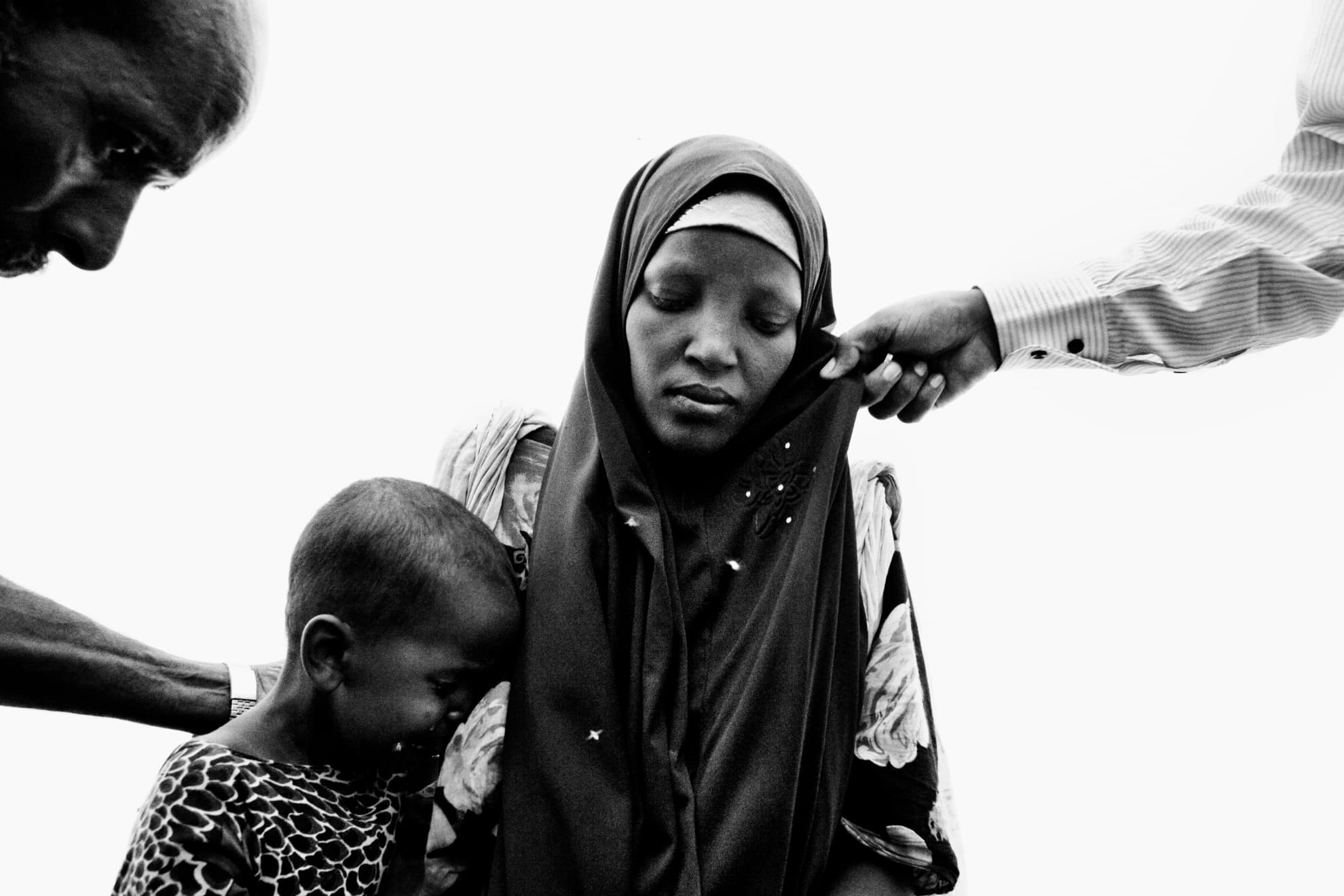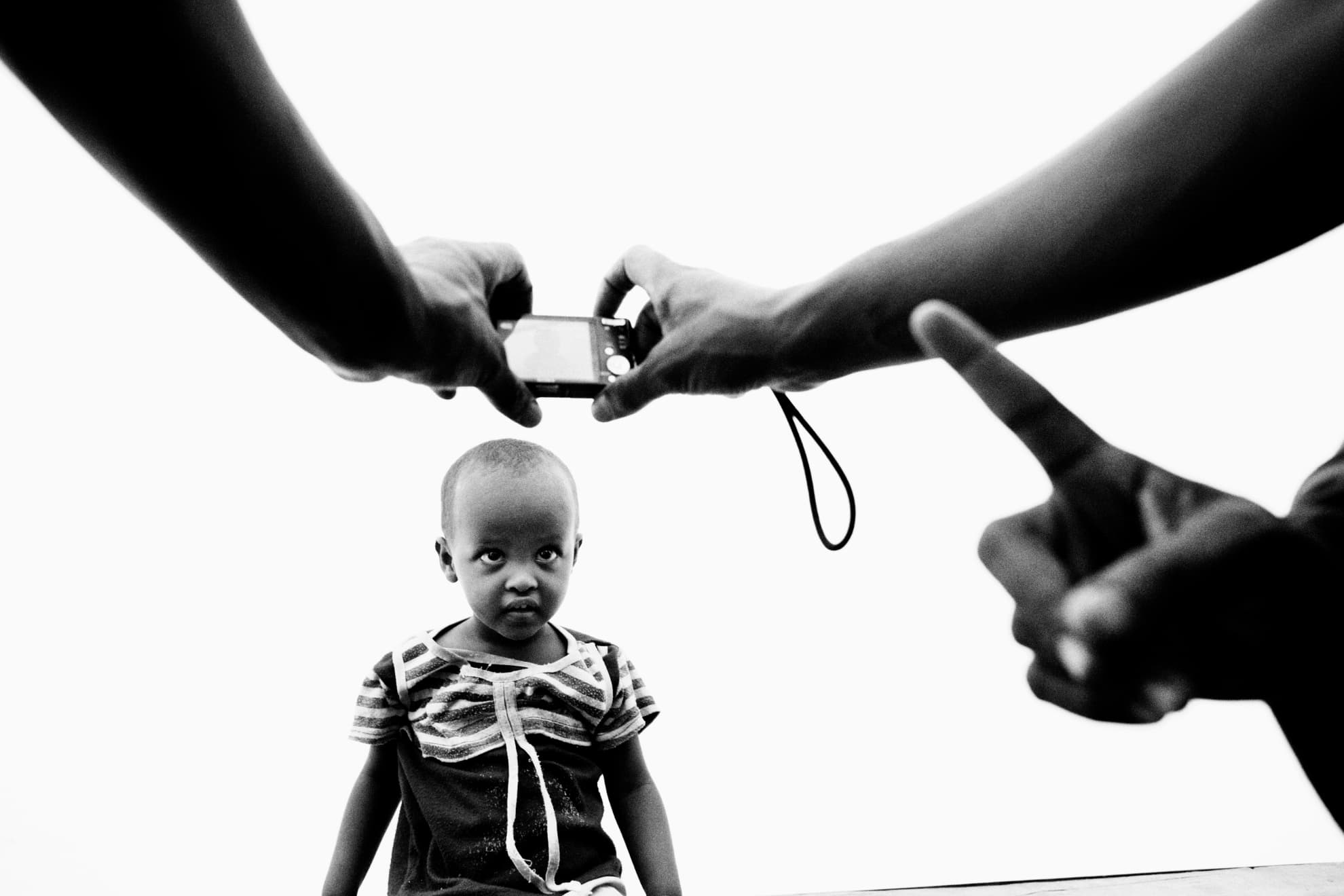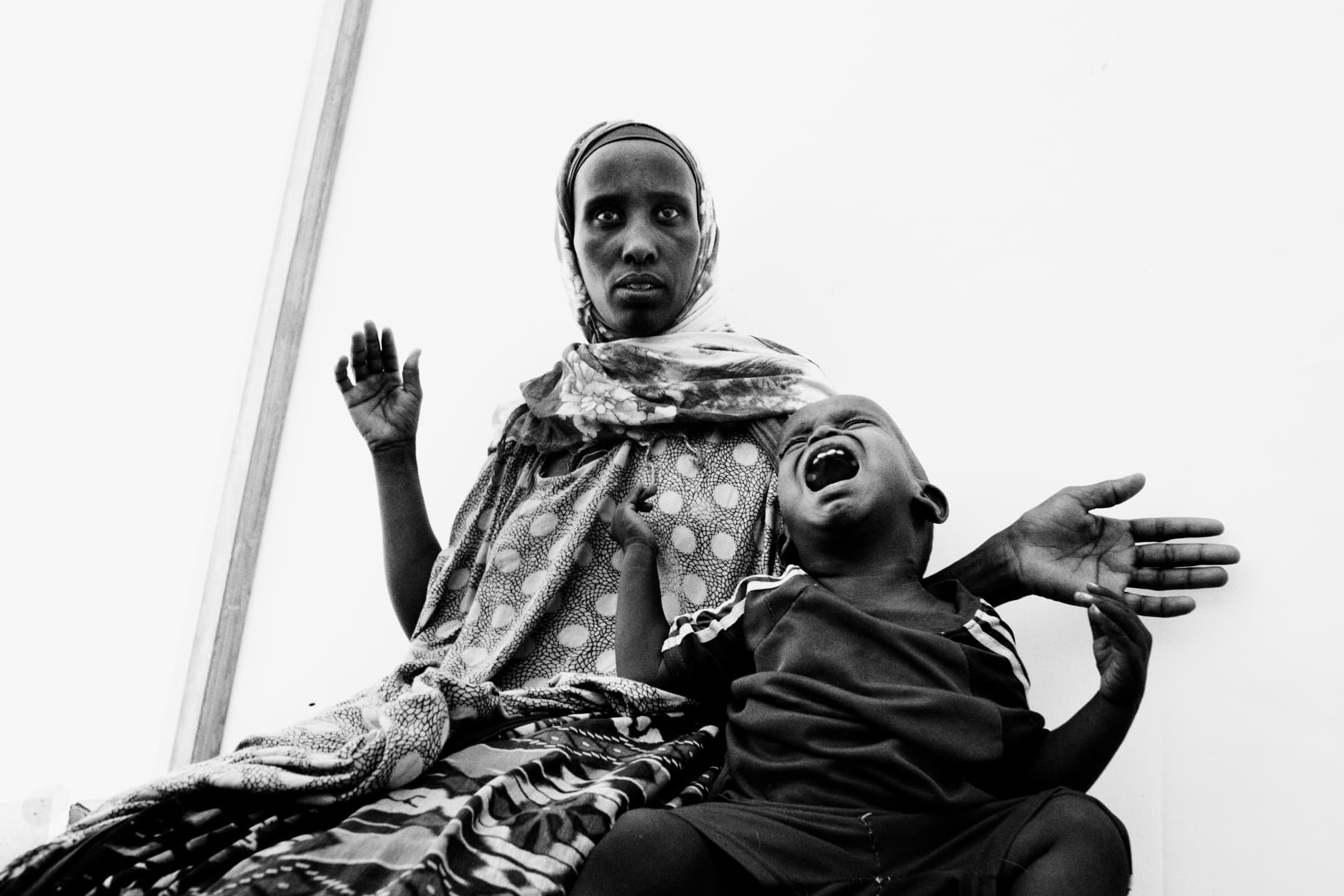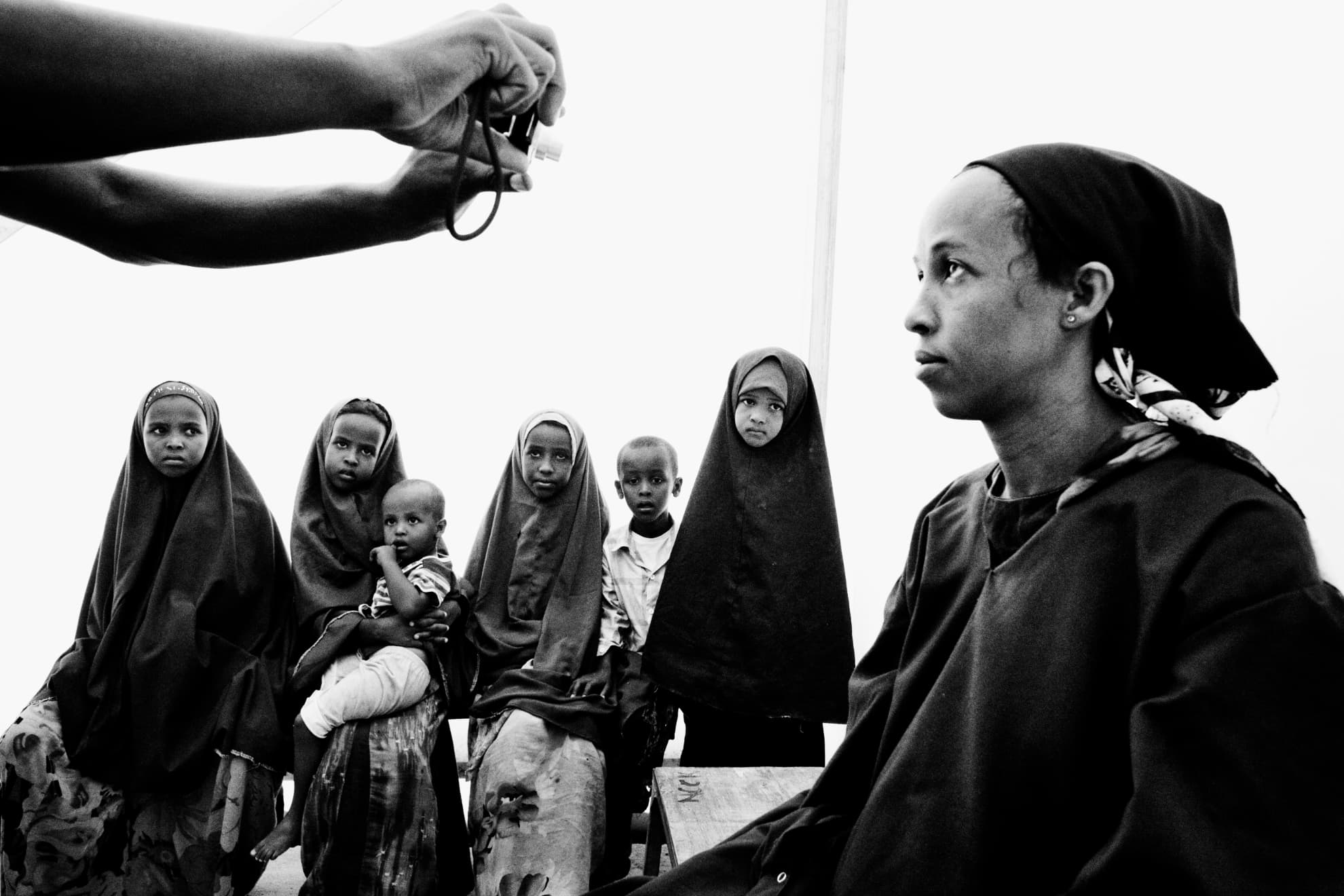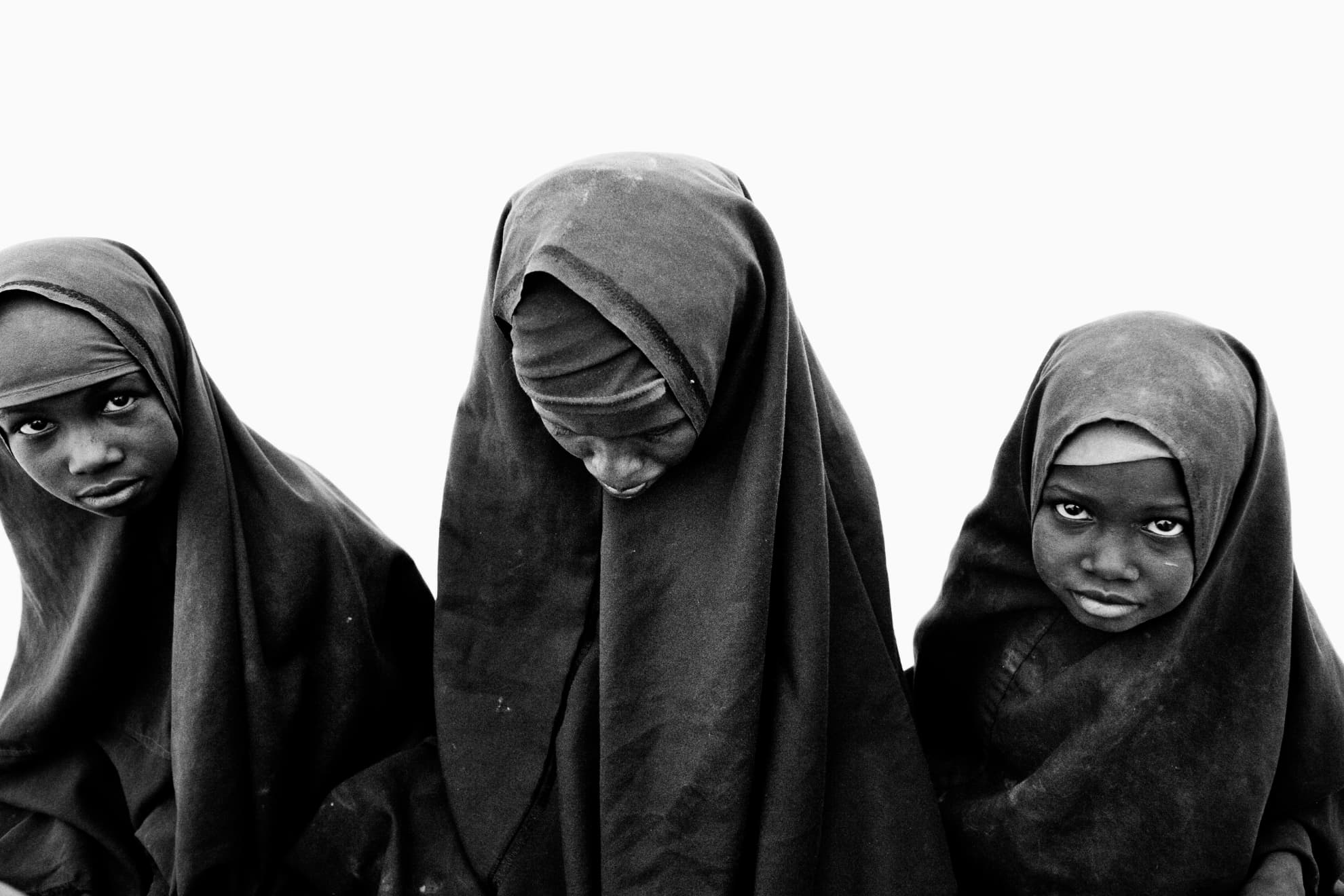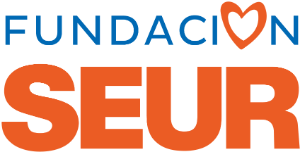Presentation
Kenya, April 2011
Of all the countries in the Horn of Africa, Somalia is the most vulnerable to famine. A twenty-year civil war and the worst drought in sixty years have together generated the most devastating humanitarian disaster occurring anywhere in the world today.
These photographs are part of a series taken at the United Nations High Commissioner for Refugees (UNHCR) registration centre located in the Ifo refugee camp near the Kenya-Somalia border. They document Somali refugees being photographed by United Nations staff during the registration process necessary to obtain a ration card.
The network of camps in Dadaab has become the world’s largest refugee centre, currently sheltering some 380,000 Somalis fleeing drought and civil war. The first installations set up at this point close to the border between Somali and Kenya, were meant to host the approximately 90,000 refugees who fled Somalia’s civil war in March 2009. Today it is calculated that over 40,000 people live on their perimeter, beyond the jurisdiction and control of the United Nations.
In the area operated under the auspices of the United Nations, all refugees are photographed and fingerprinted as part of a process of issuing ration cards that entitle the bearer to twice-weekly food allotments. Registration with the UN leads to the official refugee status required to gain access to tents, lavatories, drinking water, healthcare facilities and ration cards.
Every morning thousands of Somalis flee across the border to Kenya and walk an additional eighty kilometres to reach the United Nations High Commissioner for Refugees registration centre in Dadaab. There they must wait in a long and silent queue in which no one smiles, exchanges a word with another person or attempts to elbow his or her forward.
Biography
Luca Catalano Gonzaga was born in Rome in 1965. After completing studies in business, he forged a career in the field of communications, working with Mondadori, Stream, Mediaset and Nbc Universal. It was during this period that he developed a passion for photography.
Between 2004 and 2006 he carried out humanitarian photojournalism assignments for the Sovereign Order of Malta (SMOM) in Cambodia Italy, Laos, Lebanon, Palestine, Poland and Romania.
This experience led him to undertake ‘Worldless Children’, a photographic project focused on children’s rights throughout the world that he began in 2007.
Since 2008, Catalano Gonzalo has taken on photographic assignments that have ranged from the documentation of human rights abuses to portraiture and commercial work for business and industry.
In 2009 he receives the well known acknowledgement “Grand Prix Care du Reportage Humanitarie 2009”, thanks to a coverage of the child labour in Nepal, introduced and rewarded by the Festival International du Photojournalisme Visa Pour l’Image, in Perpignan.
In 2010 he creates a non profit association, “Witness Image”, to realize photographic reportages related to human rights defense.
The photos awarded are part of are part of a project called “Child survival in a changing climate”.
